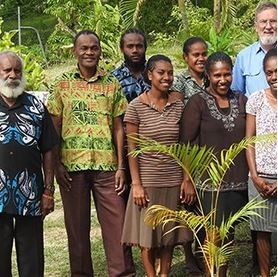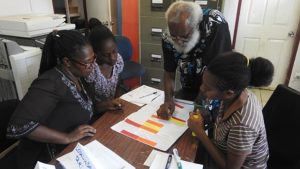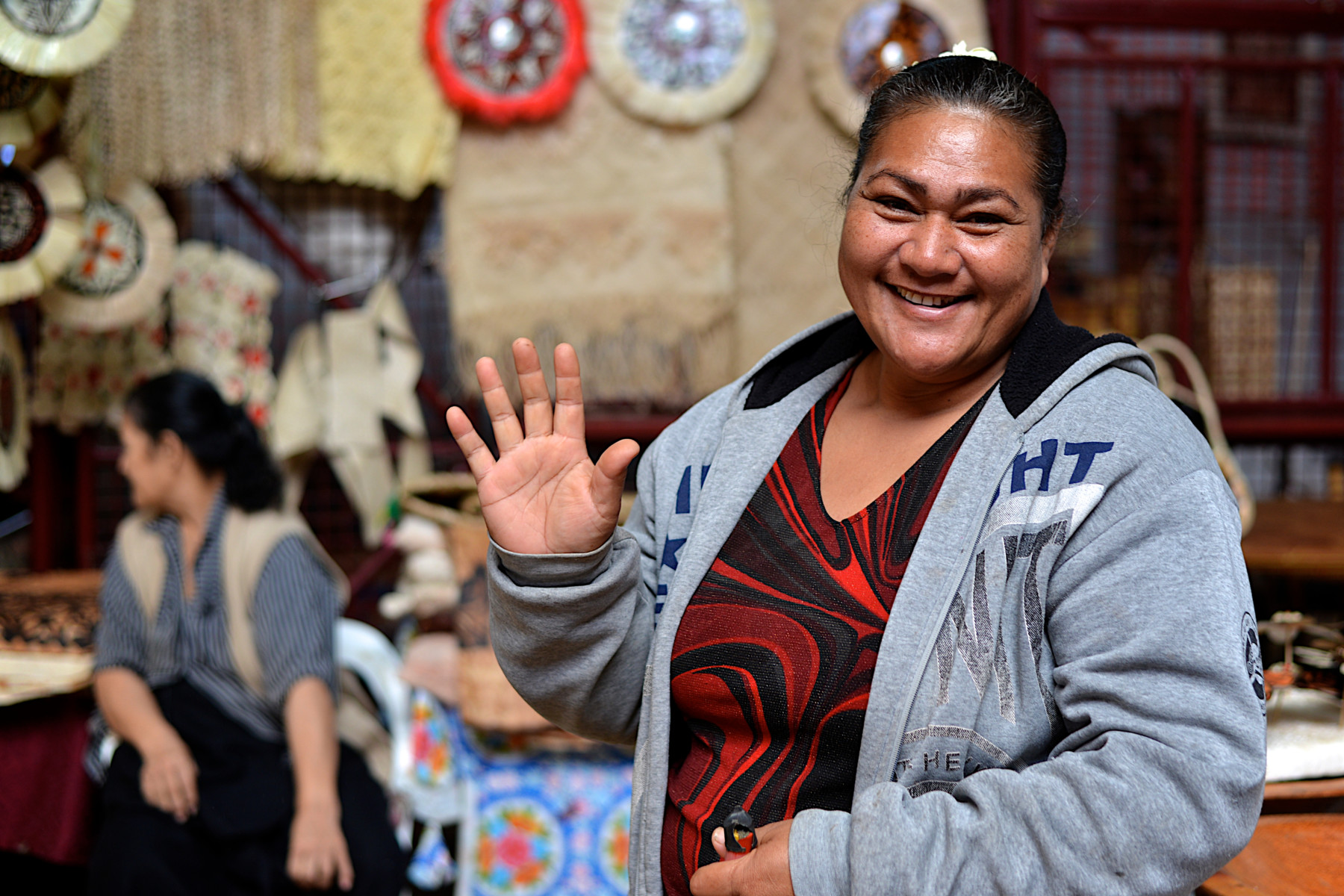Vanuatu is an extraordinary country. An archipelago island nation in the South Pacific, it has 265,000 citizens living on more than 60 islands. Some of those islands are 1,000 kilometres apart. Imagine trying to run an election there. It is a logistical challenge for the country’s electoral commission.

The Commonwealth observed Vanuatu’s 2016 general election and made recommendations for improvements, which the commission agreed to. To help with their implementation, the Secretariat deployed electoral expert Michael Clancy. Here he tells us about the country’s unusual voting method, and how he helped the commission improve Vanuatu’s elections.
Mr Clancy says Vanuatu’s democracy shares many similarities with other Commonwealth countries in the Pacific. There are a few unique characteristics when it comes to election day, though.
“Voters are given a pad with small pages in it, and each page has the photo and name of the candidate,” he says. “The voter removes the page with the candidate they wish to vote for and seals it in an envelope, and places the envelope in the ballot box.”
In 2016, a Commonwealth Observer Group reported on the general elections there. It was led by the former Prime Minister of The Bahamas, Hubert Ingraham. His group urged the electoral office to make certain changes – in his words, to undertake a “continuous voter’s registration process; develop an electronic and alphabetical register; provide for photographic voter identification; and remove deceased persons from the register”.
Mr Clancy explains: “The existing register had many duplicate entries due to people moving from one province to another and re-registering.” This weakness meant that up to 50,000 additional ineligible names, including deceased persons, had been wrongly registered during previous elections.
Mr Clancy worked with the Vanuatu Electoral Office (VEO) to fix these errors. Most importantly, he refined and tested a new electronic system of registering eligible voters. In addition, he helped officials strengthen operational plans for upcoming provincial polls. He assisted them in providing training for staff and developing an election procedures manual. He also offered to advise them in the event of a future national referendum on political and constitutional reforms.
He says he is confident that the changes will help to instil greater confidence in the integrity of the democratic process. “The voters in Vanuatu have great trust in the work of the VEO but this could be eroded if systems and procedures are not continually evaluated and improved.”

He adds, “The job is very satisfying because I am able to bring my electoral experience of working in many different countries to assist in developing plans and procedures. The staff of the Vanuatu Electoral Office and the people of Vanuatu are very welcoming and great to work with.”
According to Father Charles Vatu, Vanuatu’s Principal Elections Officer, the Commonwealth’s assistance has helped the electoral commission “to become more proactive and efficient”.
“Having someone like Michael with extensive experience in electoral process is very beneficial to the Vanuatu Electoral Office now and in the future. Vanuatu is a young country that is still developing its democracy. With the help from the Commonwealth and others we will see Vanuatu’s democracy become stronger and stable.”


